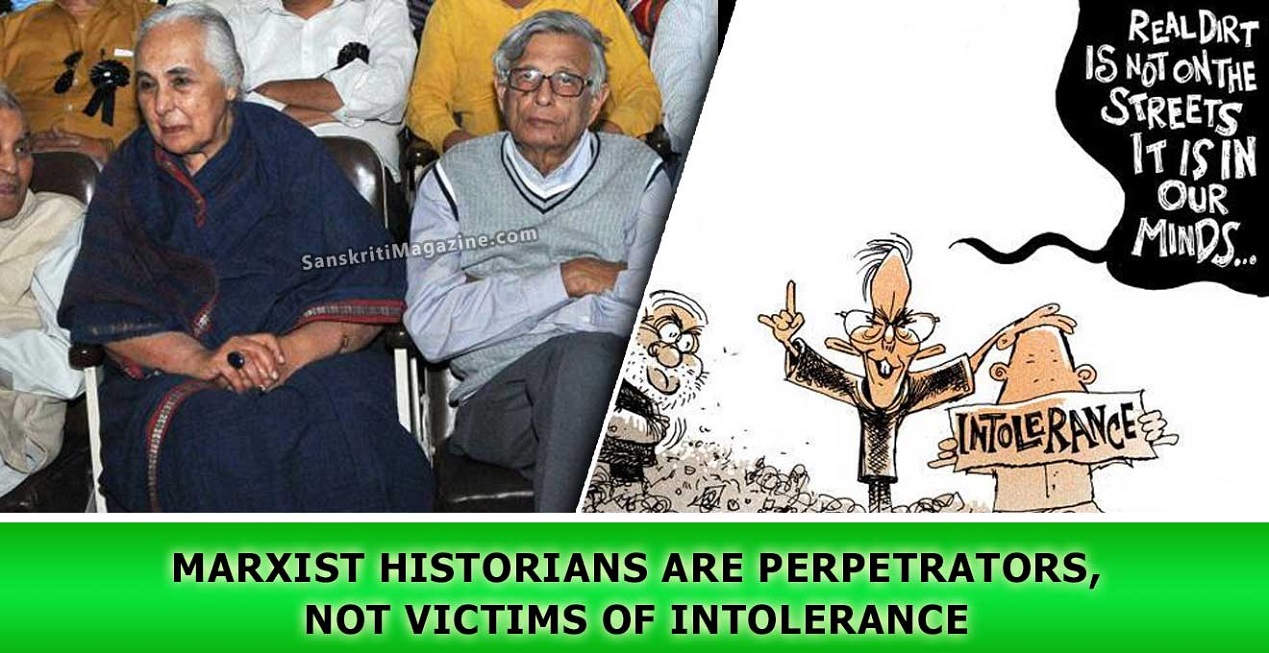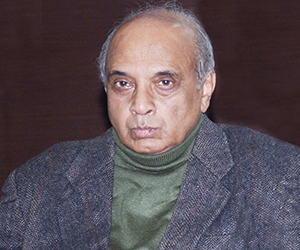Anandabazar Patrika of Kolkata has been for a long time the most widely circulated newspaper in Bengali. It is also closely linked to the political currents of West Bengal or more accurately, to the political party in power in that state. It has been for a long time the most widely circulated newspaper in Bengali. Its August 13, 2021, issue circulated in the internet carries a headline titled ‘Fascism distorts history’. The occasion was a kind of gathering of historians to celebrate the 90th birth anniversary of an Aligarh University history man, Irfan Habib. The other historians who appear by name include Aditya Mukherjee and Romila Thapar, both retired from JNU. I am not familiar with Mukherjee but I am familiar with the second name and what she has professionally published.
It has not been made explicit in the Anandabazar report but its barb directed against the present government of India is clear. Mukherjee, for instance, criticises the new history curriculum promulgated by this government. Not being familiar with the contents of this promulgation I cannot comment on it but I am certainly annoyed with Habib's attempt to establish, on the basis of their historical policies, a parallel between Fascist governments of various times and places and the present government in Delhi. I am about a decade younger than Habib but the years I have professionally spent in the universities are unlikely to be less than the period similarly spent by Habib. When this man is uttering a blatant lie, I think I should expose it equally blatantly.
Habib is well-known to be affiliated to the communist lobby of Indian historians, which dominated the Indian historical world till recently. I am well familiar with the tyranny of this lobby and its generally fascist character. Through some so called historians of Delhi University, JNU and elsewhere notably Aligarh and Kolkata, Habib and the historians of that ilk basically ruled and terrorised the general network of historians of the country. The fact remains that Habib and his cabal of communist historians may be considered about the most vicious academic group in the faction-ridden and politically divided world of Indian academia. We must be very careful of the so-called liberal utterances of these people and unashamedly hoot them out of any academic discussion on how history is to be taught in the country.
Incidentally Habib in his career seems to have published more books on ancient India than on the mediaeval, supposedly the major field of his academic specialisation. He also co-edited a volume on the atlas of ancient India. All that I would say is that the ancient India volumes with which Habib is associated are not worth having a second glance at and are not scholarly. What is further infuriating is that Habib labels ancient Indian historians of the first half of the twentieth century as ‘revivalists’ etc. without, of course, the courage or decency to cite specific data. The accusation has, in fact, been examined at length by me in my study of nationalism in the study of ancient Indian history.
In the case of Ms Thapar, one is profoundly amused by the fact that here she declares her belief in the concept of the Aryans as a racist concept. This amusement springs from the fact that till comparatively recently she showed a lot of faith in the Aryan theory. However, better late than never!
It is one thing to come out against the communist dominance in Indian historical studies but it is quite another to define clearly what it has to be replaced with. The old order associated with the communists was democratically thrown out in 2014 and by this time some model of non-communist history should have been in place before us. Nothing of the sort has happened yet and people officially associated with the reorganization of historical studies have not gone beyond making some remarkably silly utterances such as the need of rewriting of ancient history on the basis of mythology and seeking historical reality behind the epics, etc. The other day, in a webinar organized by the Indian Institute of Advanced Study, Simla, I had to listen to a young woman expostulating on how Kalhana of Kashmir saw his version of Kashmir’s history as a kind of Kavya. I wondered in my own mind what was more important to a researcher on ancient Kashmir, the Kalhana sense of history or a critical examination of his text’s historical geography based on a re-survey of the archaeological material and textual identification attempted many years ago by Aurel Stein.
The point I shall make is that the tradition of villainy left behind by various kinds of rogues masquerading as communists or left-liberals should be replaced not by a new set of villains with their minds fixed only on myths and mythology of various kinds but by substantive and diligently researched empirical work. There should be many more people with clear ideas of the historical research potential of various areas and various times
(The paper is the author’s individual scholastic articulation. The author certifies that the article/paper is original in content, unpublished and it has not been submitted for publication/web upload elsewhere, and that the facts and figures quoted are duly referenced, as needed, and are believed to be correct). (The paper does not necessarily represent the organisational stance... More >>
Image Source: https://www.sanskritimagazine.com/wp-content/uploads/2017/06/Marxist-historians-are-perpetrators-not-victims-of-intolerance.jpg











Post new comment